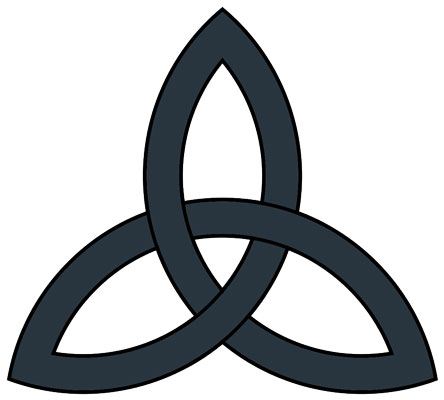I’ve been working on a book about the Holy Spirit, because I think the Holy Spirit is the least understood aspect of God. In the Trinity, we’re pretty familiar with God as God or the Father, we’re pretty familiar with Jesus, God as the Son. But the Holy Spirit? Simon Ponsonby, author of And the Lamb Wins wrote, “It has often been said that the Holy Spirit is the Cinderella of the God-head (the Trinity).
Not only the forgotten family member, but your first surprise might be the Holy Spirit is a someone and not just a feeling or power. We have an image for Jesus, we sort of have an image for God, but we seem to view the Spirit as a something, not a someone. I am going to encourage you to start seeing the Holy Spirit as a person, as someone who dwells within us, someone we can connect to and someone who is a partner on our journey.
My suspicion was that God as the Holy Spirit and more so the Holy Spirit as a person might be a new concept to many. To confirm this suspicion, I reached out by email and on social media with this simple question: What do you think of when you hear the term Holy Spirit?
I received over 200 responses and, while I am making some assumptions, I have grouped the responses in four main categories with the words that people shared:
- Internal – softness, peace, intuition, inner strength, still small voice, calm, comforter, conscience
- Action – powerful, creative, presence, binder, unifier, energy, enlightenment, enthusiasm, mysterious, empowering, encourager, wonderous, wisdom
- Role – helper, counselor, leader, Creator, forgiver, companionship, great physician, guide
- Physical – Breath of God, a dove, dancing, fire, refreshing wind, renewing rains, teacher, goosebumps, violent wind, tongues of fire, gentle as a breeze, powerful as a tornado
As I suspected, there were few references to the Holy Spirit as a person. The third person of the Trinity and The defining person of my soul were the only direct references to characterizing the Spirit in the form of a person. The responses represented internal feelings, actions, roles, or physical attributes of the Holy Spirit.
There were also some other helpful and interesting responses:
Mentioned a few times in the responses was the word ruach, a Hebrew word means breath, wind, or spirit. When used in reference with God, it becomes translated as the Holy Spirit. One of the limitations of the English language is it “forces” us to pick a gender. Ruach takes the form of masculine and feminine and a couple responders found comfort in seeing the Holy Spirit and a feminine aspect of God.
Another interesting perspective put forth was that our concepts of God are shaped by where we grew up or live. This person referenced the book Dakota: A Spiritual Geography by Kathleen Norris who believes our perceptions of God are directly shaped by the geography in which we live. Does the person who lives in the mountains have a different conceptualization of God and the Holy Spirit than does someone who lives by the ocean…than someone who lives in the jungle…than someone who lives in a bustling metropolis…than someone who was raised on the prairie?
One person listed Catholicism, seemingly tying the Spirit to a denomination, not as an aspect of God. One person compared the Holy Spirit to the dynamics in the piece of music. One per said Holy Spook, another that it Kicks you off your butt.
We look for internal signs, for action in our lives, for roles to assist us, and in physical signs. Our challenge is to grow in our understanding of God as God, God as Jesus Christ, and God in the person of the Holy Spirit.

One thought on “What is the Holy Spirit?”
I wonder this morning if all these various responses will help us to under the nature and character of God will always be far beyond are ability to comprehend, and keep us from trying to put God in some neat, little box, but always seek to live by faith, hope and love, and to keep us from giving up on God when not fulfilling our expectations.